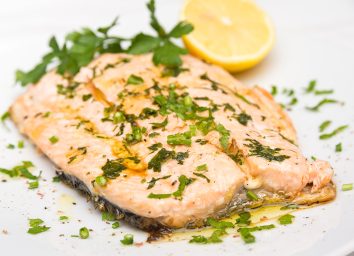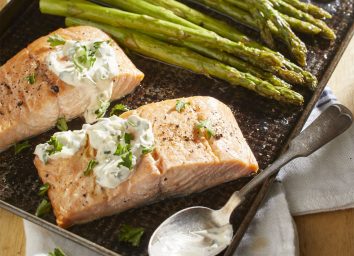
Salmon is always claimed to be the healthier choice, especially when you're out to eat. Yet while salmon is clearly fewer in calories compared to steak, we had to ask ourselves: Why is salmon claimed to be the healthiest choice? What happens to your body when you eat salmon and does it really give you a lot of health benefits?
We researched all the details about salmon and why it's considered healthy and even looked at some of the risks if you eat too much of it.
It's a great source of omega-3 fatty acids.

Because our bodies can't produce omega-3 fatty acids by itself, it is an essential nutrient we need. Omega-3 fatty acids are a class of polyunsaturated fats, which are great for heart health, eye health, brain health, hormone production, immune function, and heart and lung support. A typical 3 oz. fillet of salmon will give you almost 2.2 grams (2198 milligrams) of omega-3 fatty acids. This gives you a sufficient amount of omega-3 fatty acids you need in a day because the recommended daily intake (RDI) is around 250 to 500 milligrams for an average person.
You're getting high quality protein.
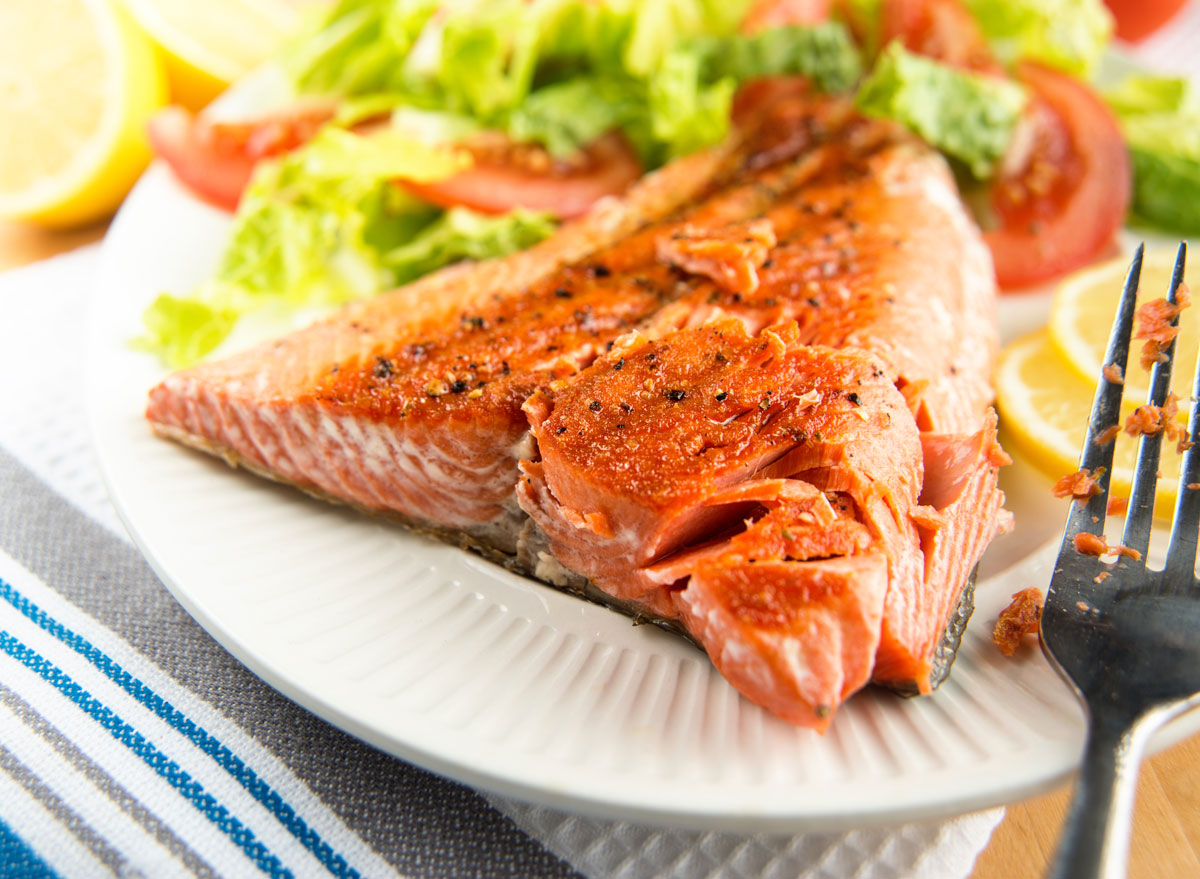
Protein is an important macronutrient that your body needs for increasing calorie burn, decreasing hunger, and maintaining muscle mass. Not only that, but a diet with a sufficient amount of protein can actually help you to feel full. The RDI for protein is between 46 and 56 grams of protein for an average adult. A 3 oz. salmon fillet will actually give you around 21 grams of protein, which is almost half of the amount of protein you need for the day! You can calculate your proper protein intake here.
Your body gets a myriad of nutrients.
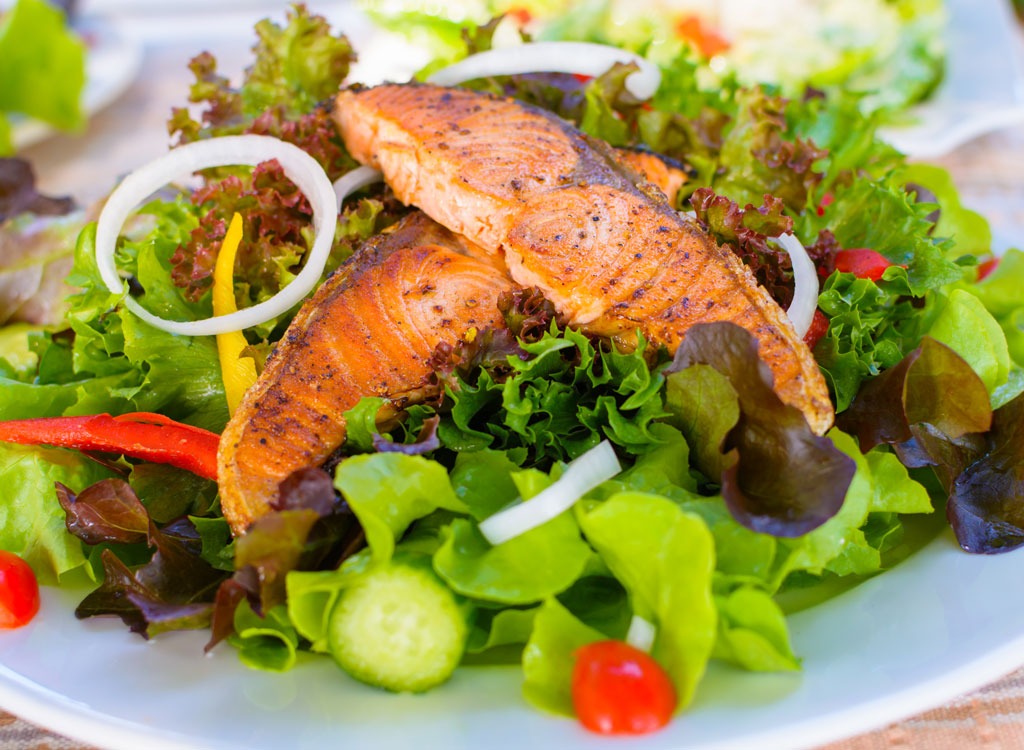
Along with giving you a sufficient amount of omega-3 fatty acids and protein, if you eat salmon your body will also benefit from a lot of different nutrients.
Salmon is incredibly high in multiple B vitamins, including B6 and B12, which are incredibly important for boosting your immune system and helping you feel awake. A 3 oz. salmon will give you 40% of your vitamin B6 DRI and 43% of your vitamin B12 DRI.
Salmon is also a great source of potassium (15% DRI), phosphorus (22% DRI), selenium (57% DRI), niacin (43% DRI), and of course, omega-3 fatty acids.
It can help you lose weight.

Between the protein and the healthy fat content, a fillet of salmon can help you to feel full after a meal. Studies show that people who get a sufficient amount of protein will likely consume fewer calories in the long run because they feel satiated enough to stop eating. Which, of course, results in weight loss.
It contains mercury.
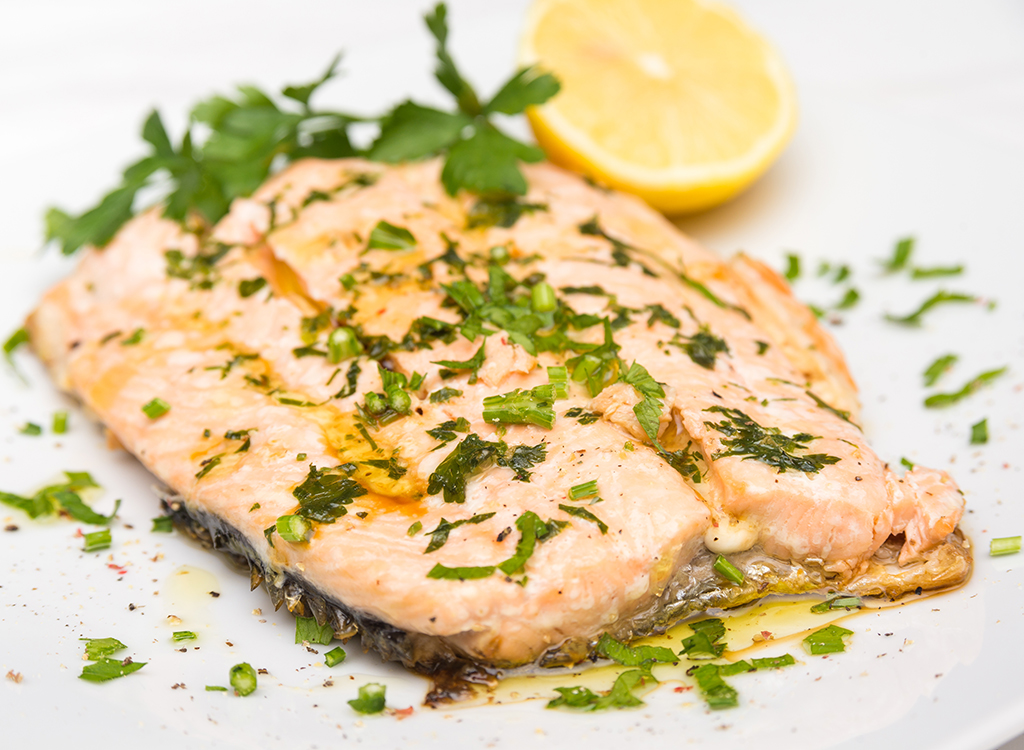
According to the World Health Organization, mercury exposure can actually be toxic to your central and peripheral nervous systems. However, in order for the mercury to have serious effects on your body, you need to have a high level of it in your blood.
Salmon doesn't contain as much mercury compared to other fish, according to the FDA's data, but it's still something to keep in mind. Harvard Health recommends getting a variety of different types of lean protein in your diet—including different types of fish—so you can keep your mercury levels low.
It fits perfectly in the world's healthiest diet.
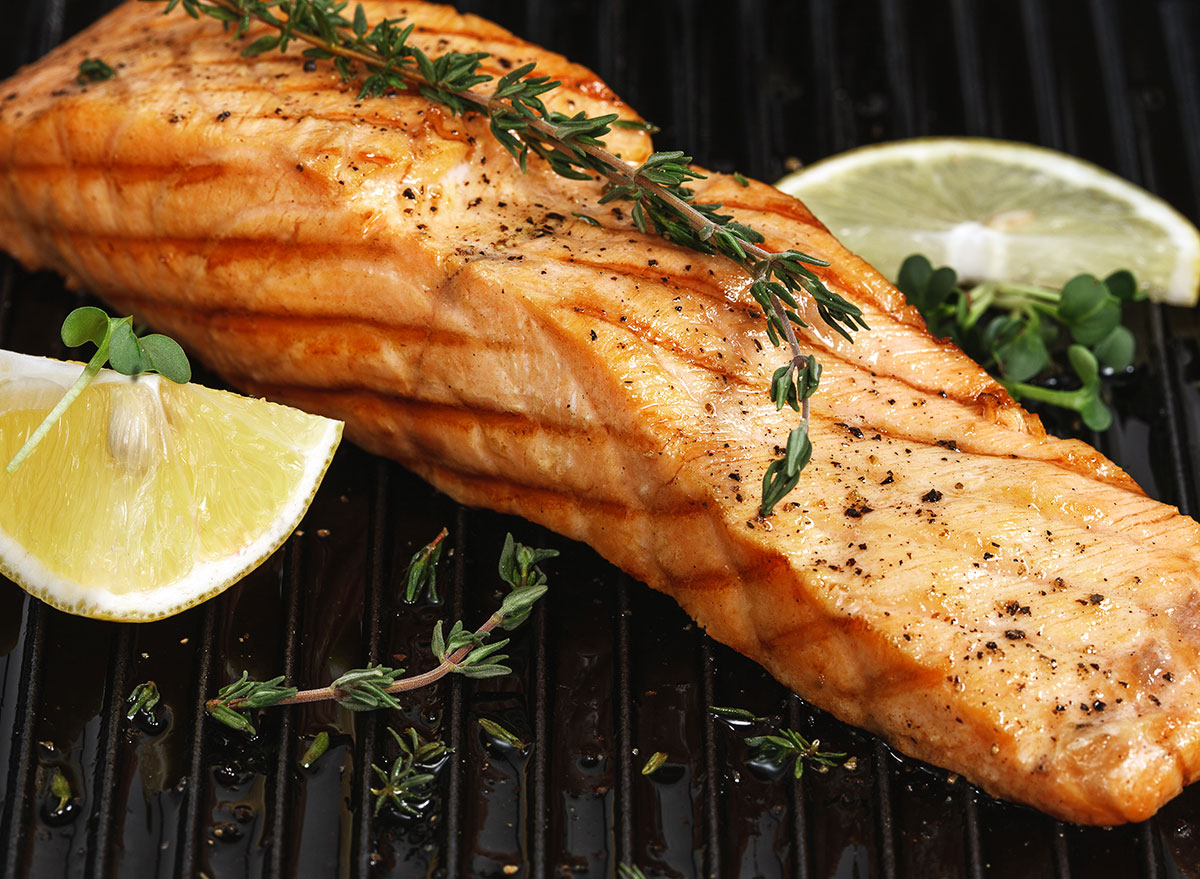
This leads us into how much salmon you should eat, and the answer is in the critically acclaimed Mediterranean Diet. This particular diet ranked as the Best Diet of 2020 by the U.S. News & World Report, and continues to see high rankings year-after-year. Which makes sense, given that it's a very similar diet that people eat to live a longer life. MayoClinic says on the Mediterranean Diet you should eat fish at least twice a week. Salmon is obviously a great contender, as well as tuna, trout, and mackerel. But after learning about all the benefits for your body when you eat salmon, it does seem like salmon would be one of your better choices.
For more healthy eating tips, be sure to sign up for our newsletter.

